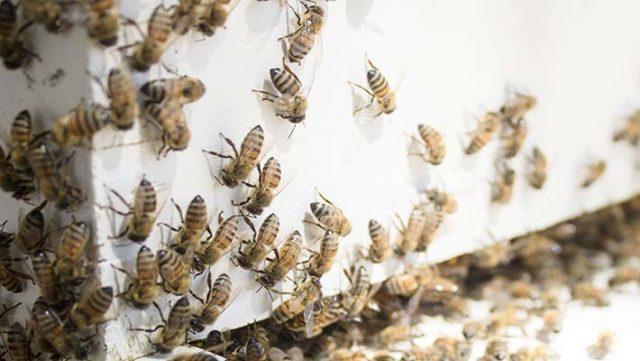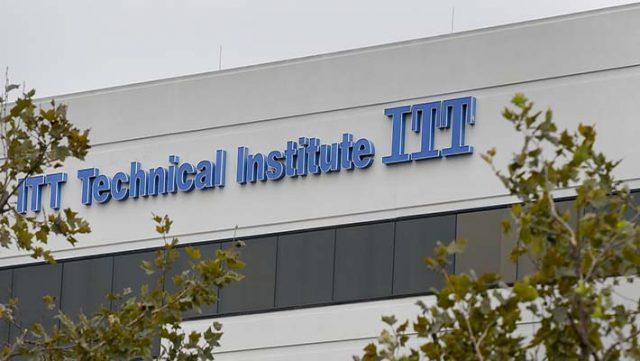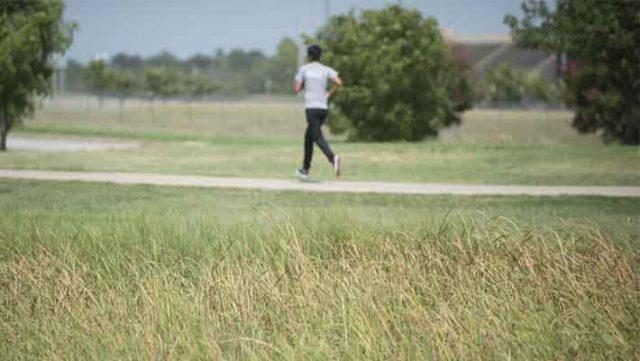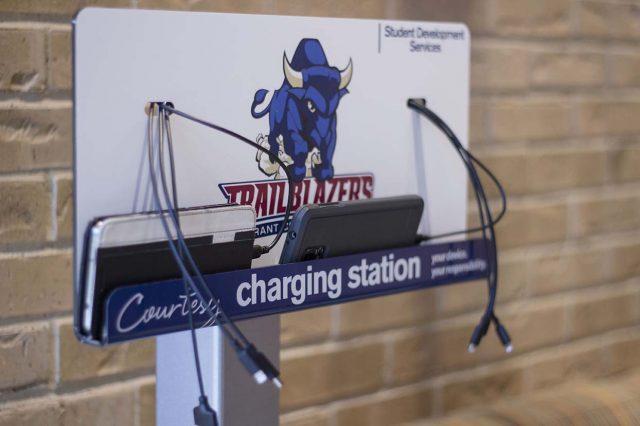By Katelyn Needham/ campus editor
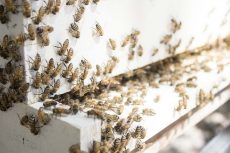
Bogdan Sierra Miranda/The Collegian
Hidden far from the view of SE Campus students, an unassuming box houses the faint buzzing of the 60,000 bees who call it home.
Over the past summer, the sustainability committee, a group of faculty and staff who takes on projects to better the ecosystem on campus, added the very unlikely neighbors to the campus’ tree farm.
Campus plumber Mike Lawson and lead groundskeeper Marc Villanueva, both members of the committee, work closely with the bees.
“I wanted bees for about three years,” Villanueva said. “But they are only available early spring from suppliers because during the summer they are working on pollinating crops. But Mike does bee removal and said he would bring me some, so I gave him the hive and he brought it back full of bees.”
The committee plans on using the bees to not only pollinate the plants around campus but also allow for educational opportunities for students.
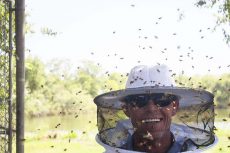
“The dietary program is going to harvest the honey from our hive,” Villanueva said. “We also hope to have the biology students collect the bees that die and study them as a part of the class. Bees housekeep around the hive, so when one dies, they just throw it out.”
With the bee population decreasing, the bee project is aimed at getting more young people interested in preserving the insects through beekeeping.
“It’s a dying art,” Lawson said. “Not many people are doing it. The stingers can be used for arthritis, and the honey is used for allergies. I want students to be able to study how the honey helps and be able to teach me things.”
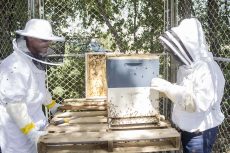
The committee has taken precautions for students with bee allergies.
“The hive is kept away from the public and main campus,” Villanueva said. “The students aren’t able to walk right up to the hive. It’s behind a fenced area with signs that say ‘Authorized Access Only.’ The bees have always been a part of the ecosystem here, living in trees and holes in the ground. We’ve just introduced a few more. Students who really want to get close to them have to wear a beekeeper suit.”
Another initiative by the committee is the sustainable garden. Eleven 20-foot plots are all currently rented out. Renters pay a $20 down payment on a plot, and if they do not take care of it or allow an intrusive
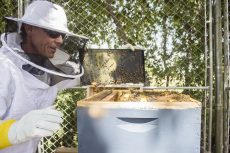
plant species to grow, then they are removed. The committee wants to get students more involved with maintaining the garden, said Michael Cinatl, assistant to the president and committee coordinator. He said the committee’s goal is to teach students about agriculture skills and ecology.
The gardeners who produce a crop from the sustainable garden have farmers markets where they sell their vegetables and herbs for 25 cents a bag.
“With the garden, I hope that we can spark the interest in students to go outside and keep a garden of their own,” Villanueva said. “I want the kids to be educated, so they want to preserve things like gardening and the bees. All of the mosquito spraying is killing the bees and, without people who want to help, we might lose them all.”

























